Social Responsibility and Business International Edition 4th Edition by O. C. Ferrell – Test Bank
Chapter 4—Legal, Regulatory, and Political Issues
MULTIPLE CHOICE
1.In the United States, the major role that society delegates to government is to
|
a. |
keep prices of products low so that all consumers can purchase convenience and luxury goods. |
|
b. |
create more jobs. |
|
c. |
encourage larger companies to conduct business in many other countries. |
|
d. |
provide laws based on the Constitution and Bill of Rights and enforce those laws through the judicial system. |
|
e. |
encourage competition by providing economic support to smaller companies in order to be competitive with powerful companies. |
ANS: D PTS: 1
2.Because no government system is perfect,
|
a. |
legal and regulatory systems are constantly evolving and changing in response to social institutions, including business. |
|
b. |
the “invisible hand of competition” has replaced many business and economic regulations. |
|
c. |
companies do not have to worry about meeting every law and regulation, since they are likely to change. |
|
d. |
self-regulatory mechanisms have created less of a need for government oversight. |
|
e. |
the costs of business regulation have decreased. |
ANS: A PTS: 1
3.When just one business provides a good or service in a particular market, what results?
|
a. |
Monopoly |
|
b. |
Lower prices due to that company’s efficiency |
|
c. |
Oligopoly |
|
d. |
Trust |
|
e. |
Deregulation |
ANS: A PTS: 1
4.Which of the following is least likely to be considered destructive or unfair competition?
|
a. |
Collaborating with a competitor to establish prices so that each firm can ensure a certain level of profit |
|
b. |
Obtaining information through ethical competitive intelligence practices |
|
c. |
Using a “bait and switch” method for selling products to customers |
|
d. |
Lowering prices significantly in an effort to drive competitors out of a market, and then raising prices afterwards |
|
e. |
Stealing competitors’ trade secrets |
ANS: B PTS: 1
5.Environmental regulations for social reasons have been necessary because of which of the following?
|
a. |
Most companies eagerly pay for the costs involved with protecting their environment because they realize their future is closely linked with the future of the environment. |
|
b. |
Consumers have willingly footed the bill for the costs of protecting the environment through paying higher prices for products and services. |
|
c. |
Companies have felt pressured to “voluntarily” pay for environmental protection acts because they are afraid of the impact on their businesses if they are not viewed as environmentally responsible organizations. |
|
d. |
Social reasons have led to regulations such as environmental protection and preservation because, although most companies voluntarily take on these responsibilities, a few companies have shirked their share of the responsibility. |
|
e. |
Social reasons have led to regulations such as environmental protection since most companies are unwilling to pay for these costs voluntarily. |
ANS: E PTS: 1
6.Which industry did Ralph Nader’s 1965 book criticize for ignoring consumers’ interests in pursuit of increased profits?
|
a. |
Pharmaceuticals |
|
b. |
Defense |
|
c. |
Food |
|
d. |
Automobile |
|
e. |
Toy |
ANS: D PTS: 1
7.Which act is the principal tool employed by the federal government to prevent businesses from restraining trade and monopolizing markets?
|
a. |
Sherman Antitrust Act |
|
b. |
Clayton Antitrust Act |
|
c. |
Federal Trade Commission Act |
|
d. |
Anti-Monopoly Act |
|
e. |
Roosevelt Antitrust Act |
ANS: A PTS: 1
8.What provisions did the Clayton Act include to clarify and expand upon the Sherman Antitrust Act?
|
a. |
It created an organization to protect consumers and businesses from unfair competition. |
|
b. |
It limited mergers and acquisitions that have the potential to stifle competition. |
|
c. |
It provided specific exemptions to utility and other similar industries, which tend to have natural monopolies due to the exorbitant costs involved with starting up. |
|
d. |
The Clayton Act actually made most of the provisions of the Sherman Antitrust Act null and void rather than expanding on the earlier legislation. |
|
e. |
It specified that one person could be a member of only three boards of directors within the same industry. |
ANS: B PTS: 1
9.Which of the following is not a method that the Federal Trade Commission (FTC) uses to influence business activities?
|
a. |
The FTC can issue a formal complaint stating that a firm is in violation of the law. |
|
b. |
The FTC can issue a cease-and-desist order that requires a company to stop engaging in a specified illegal behavior. |
|
c. |
The FTC can file criminal charges against companies that break antitrust laws. |
|
d. |
The FTC can seek civil penalties against an offending company. |
|
e. |
The FTC helps to resolve complaints and issues rulings on areas of emerging concern in business. |
ANS: C PTS: 1

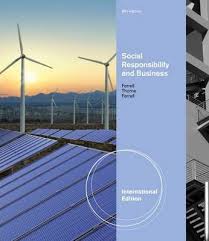




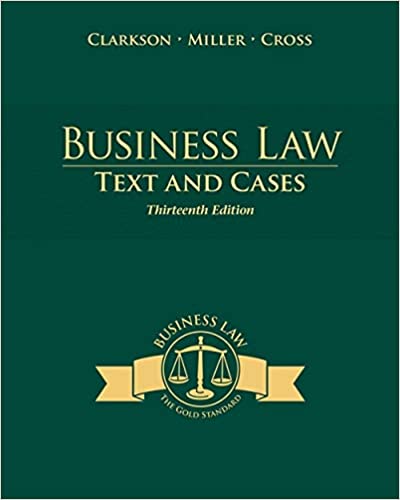

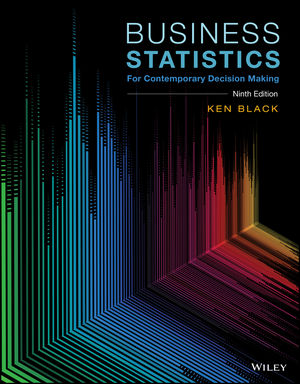


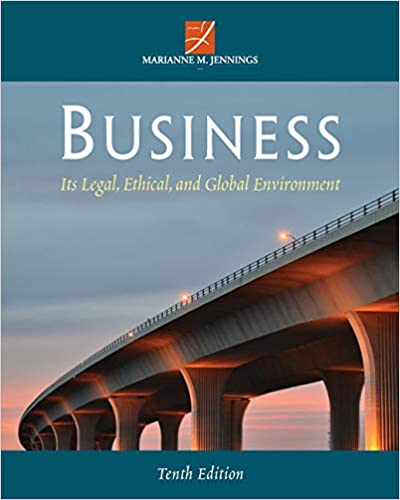
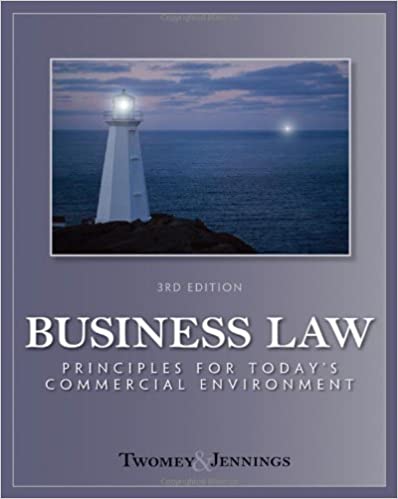

Reviews
There are no reviews yet.